
6 Considerations about Making Wise Investments During Your Clinical Fellowship Year
Congrats on becoming an SLP graduate! As you begin your professional journey, you will soon feel the need and desire to begin investing in continuing education courses and therapy resources in order to better your skills, continue learning, and provide the best care for your clients. Before you give all of your time (and money!) to these, stop and review these six considerations for making wise investments during your clinical fellowship year. 6 Considerations about Making Wise Investments as a New SLP Graduate #1 Focus on What You Know Although it will be tempting to try to learn everything that
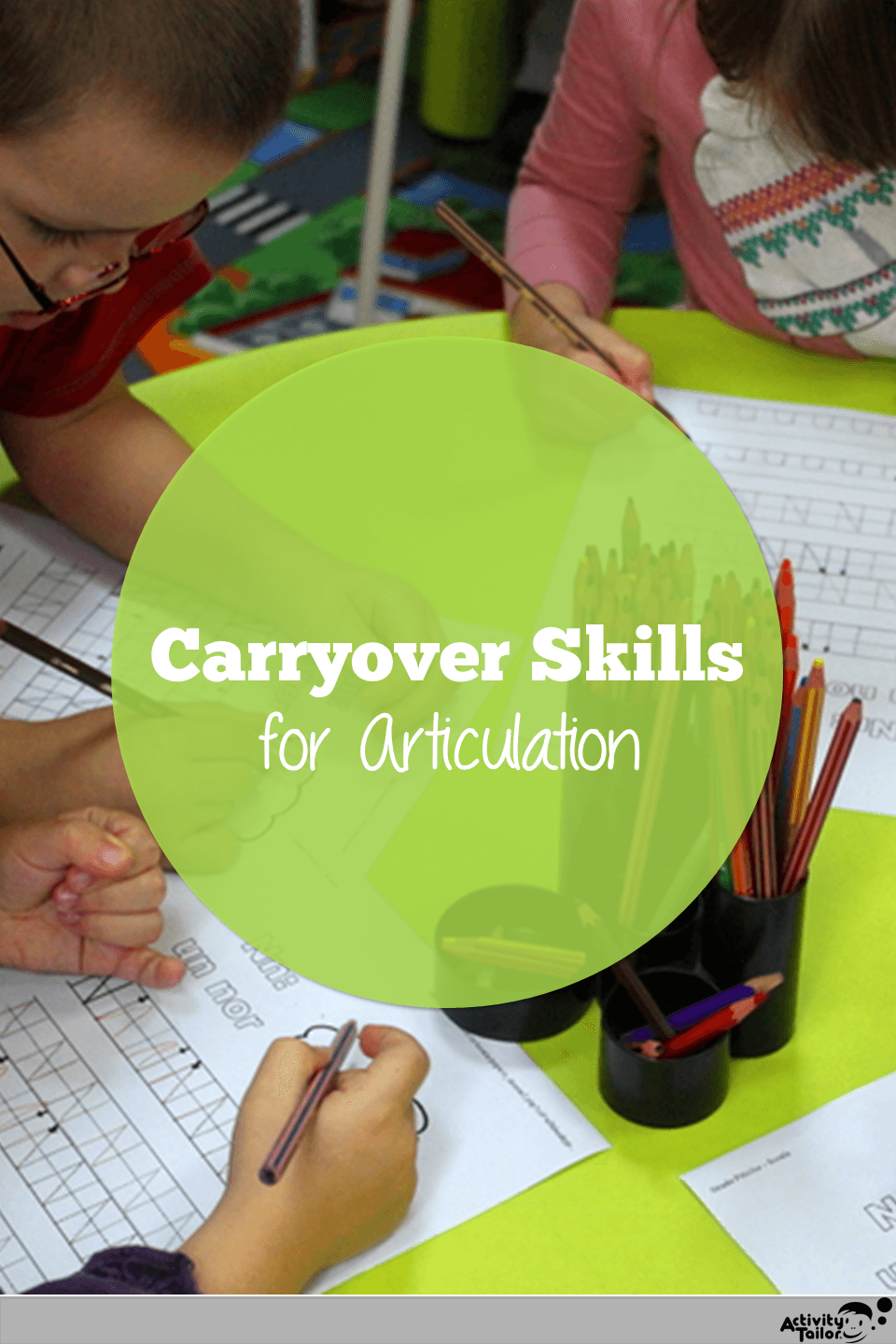
4 Tried-and-True Strategies for Effective Carryover in Articulation Therapy
Kids often get stuck in therapy. They can make a sound (or sounds) in structured activities but need help to move beyond that. The answer to this dilemma is they are lacking in CARRYOVER. Implementing carryover activities in articulation therapy is essential, and they don’t have to be difficult either! Try these 4 tried-and-true strategies for effective carryover in your articulation therapy sessions TODAY! Start Early! First thing’s first– know that you should start addressing carryover skills as soon as possible! By implementing carryover strategies in small chunks over the entire course of a child’s therapy journey, you’re instilling self-confidence
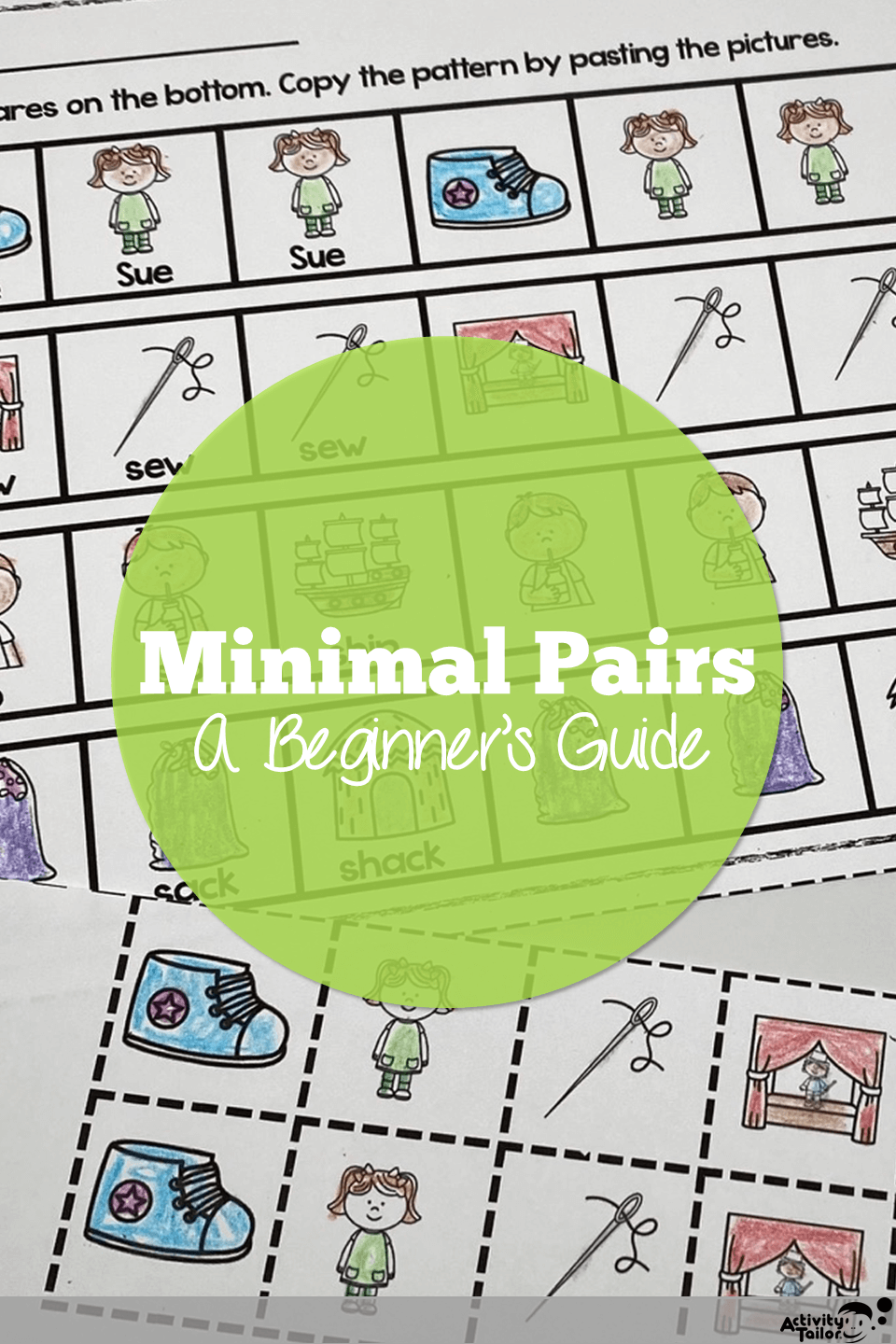
An Overview of the Minimal Pairs Approach for Speech Sound Intervention
The minimal pairs approach is a popular intervention for treating speech sound disorders. You might have heard your child’s SLP mention this, or maybe you are an SLP who is looking for a refresher about how to implement it with some of your students. Read on for an overview of the minimal pairs approach and learn when it’s most effective and how to implement it in therapy sessions! What is the Minimal Pairs Approach? The minimal pairs approach is one of the oldest interventions used to treat phonological disorders in speech. It’s formally referred to as “Minimal Oppositions”. This approach

SLP Expert Opinion: Milestones vs Averages and Why Developmental Milestones Have Changed
You’re frustrated. Other kids the same age as your child are talking so much more than yours is, but your pediatrician is saying there is nothing to worry about. People are saying the developmental milestones changed recently too. What does all this mean, and what should you do next? Let’s dive right in and answer these questions! The Pediatrician Says Don’t Worry There’s a lot of talk about milestones when you have little ones, but one of the most frequently asked questions I hear is “Why don’t the milestones SLPs talk about match what my child’s pediatrician says?” This is

5 BEST Tips to Make the Most of Your Summer Off as an SLP
Hooray, it’s almost summer! You’re a hard-working SLP, and you’ve given your all for the past 9+ months of this school year. It’s easy to want to leave it all behind you and run towards summer break, but following these 5 tips will ensure you actually make the most of your summer off as an SLP. You owe it to yourself! Finish well Get ahead Reflect Disconnect Have fun! Make the Most of Your Summer Finish Well Actually finish the year! Finish filing. Throw away those papers you aren’t sure what to do with that you’ve looked at all year
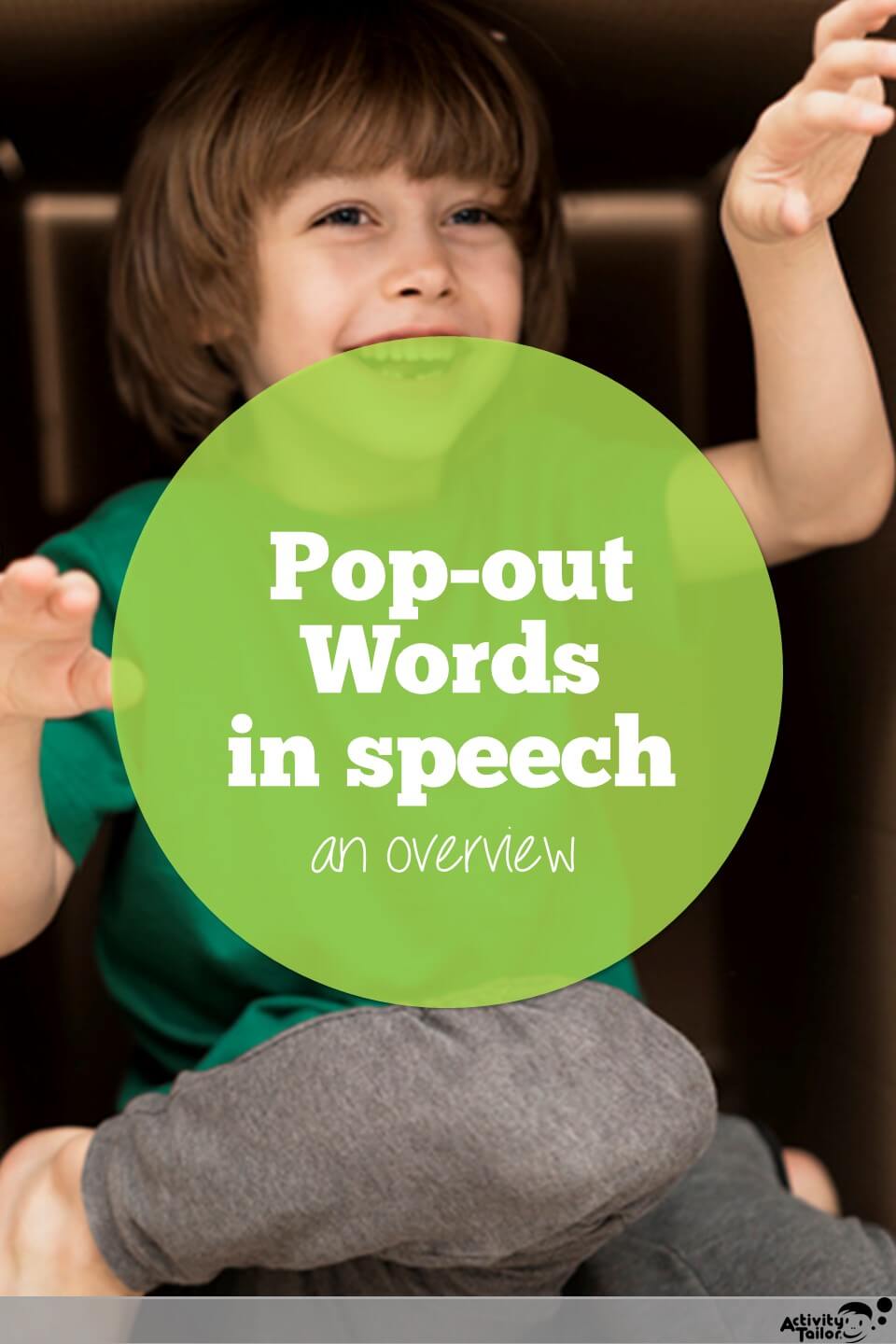
Understanding Pop-Out Words in Speech and What They Mean for My Child
Is there anything more frustrating than hearing a word a couple of times from your child and then IT DISAPPEARS?! Where did it go?! These words are referred to as “pop-out words”. They are a very normal occurrence for little ones whether they’re on track with their speech and language development or a bit behind. Let’s talk more about understanding these pop-out words in speech and what they really mean for your child. More about Pop-Out Words The phrase “pop-out words”, coined by Pam Marshalla, refers to when a child says a word clearly on occasion but doesn’t say the

Does Your Child Repeat Everything? They Might be a Gestalt Language Learner!
Does your child repeat words and phrases? Maybe common things you say or lines from their favorite song or show? Do the words or phrases sometimes feel out of place? Even though they repeat, does it feel like your child doesn’t repeat when you ask them to? Your child might be a gestalt language learner! What is Gestalt Language Learning? Gestalt language learning is a style of language learning that starts with repeating phrases and ends with making new, spontaneous speech. Unlike most children who learn to communicate starting with single words, gestalt language learners acquire language through chunks called
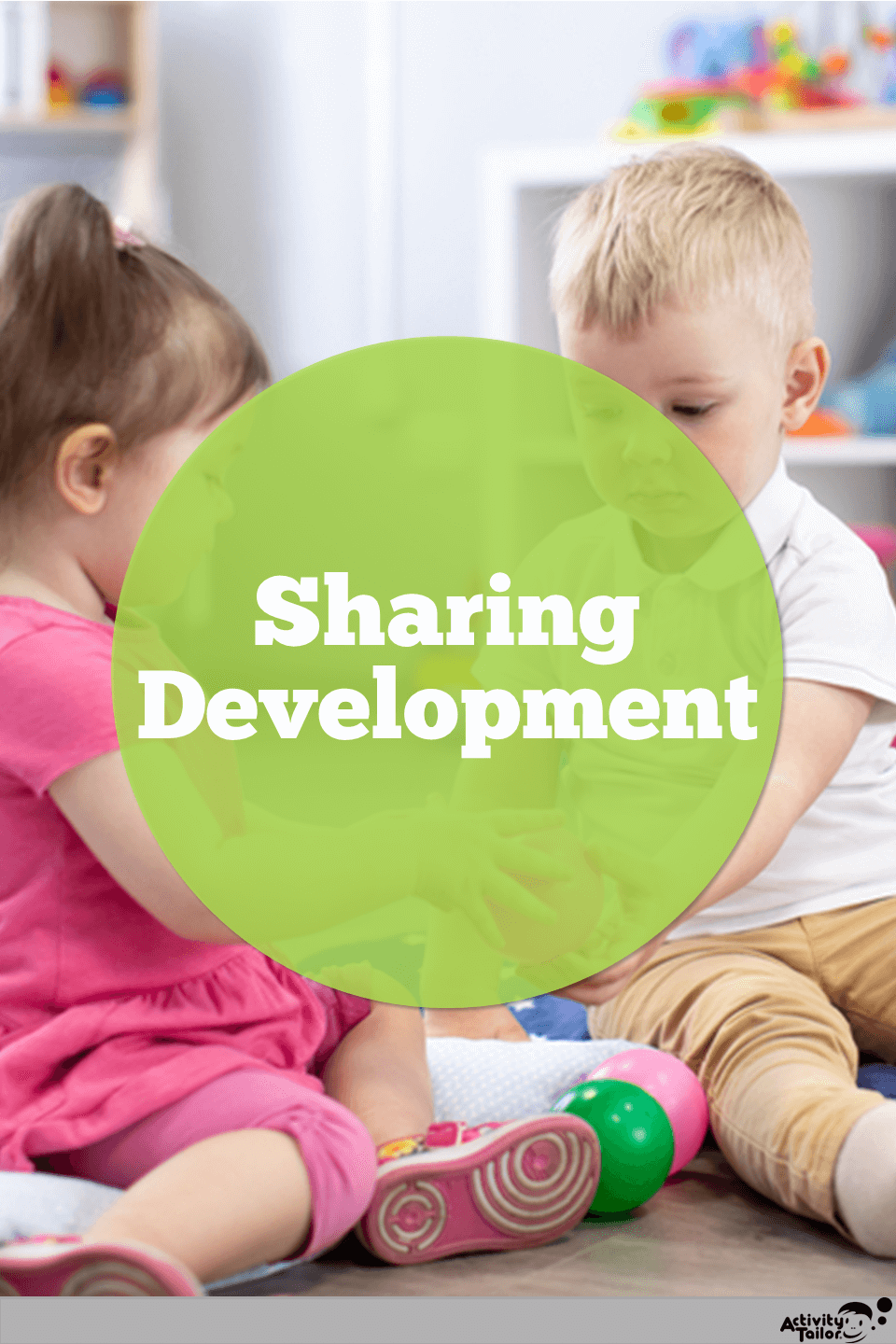
How to Help Your Child Learn to Share and Why They Aren’t Already
Share, please share, share. You likely say this often to your little one. But why? And why don’t they understand? Teaching little ones how to share can feel like such a challenge. Let’s chat about why this is often the case and how you can help teach sharing to your toddler or preschooler. Why is Sharing Important? Sharing promotes compromise and fairness. It is vital for developing lasting friendships, cooperating with others, learning how to wait, negotiating skills, and managing feelings of disappointment. Sharing back and forth in play also sets the stage for the back and forth style of
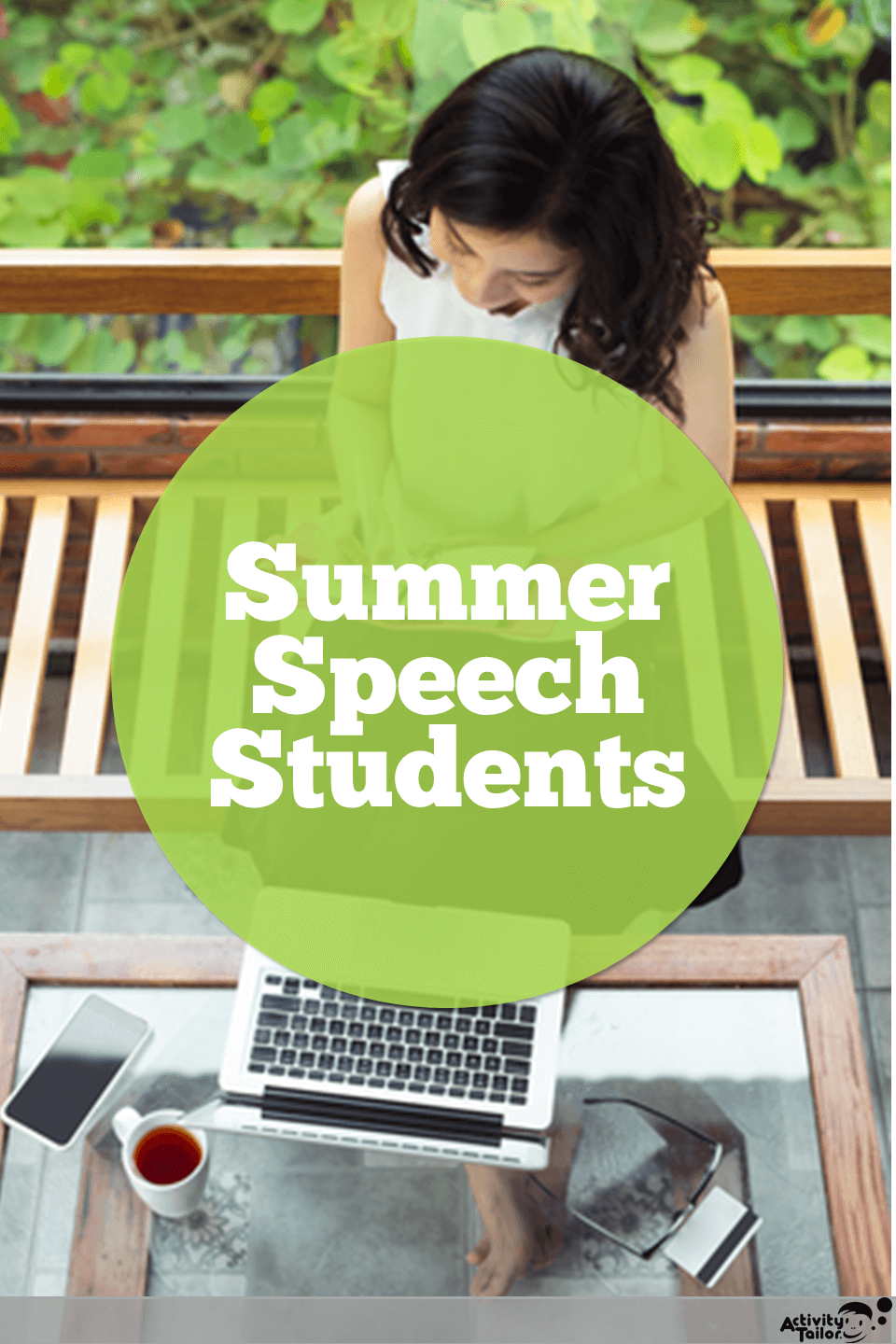
Seeing Speech Students Over the Summer
Can you take a few private clients this summer? If you’re interested in seeing students over the summer, now’s the time to start making plans! If you’re like many speech-language pathologists, you work in the public schools during the school year which gives you the opportunity to either take the summer off or to take on summer speech students. When I sent my weekly newsletter and asked if anyone was interested in hearing my experience with working over the summer months, I was inundated with requests for more information. Here it is! Please keep in mind, requirements may vary depending
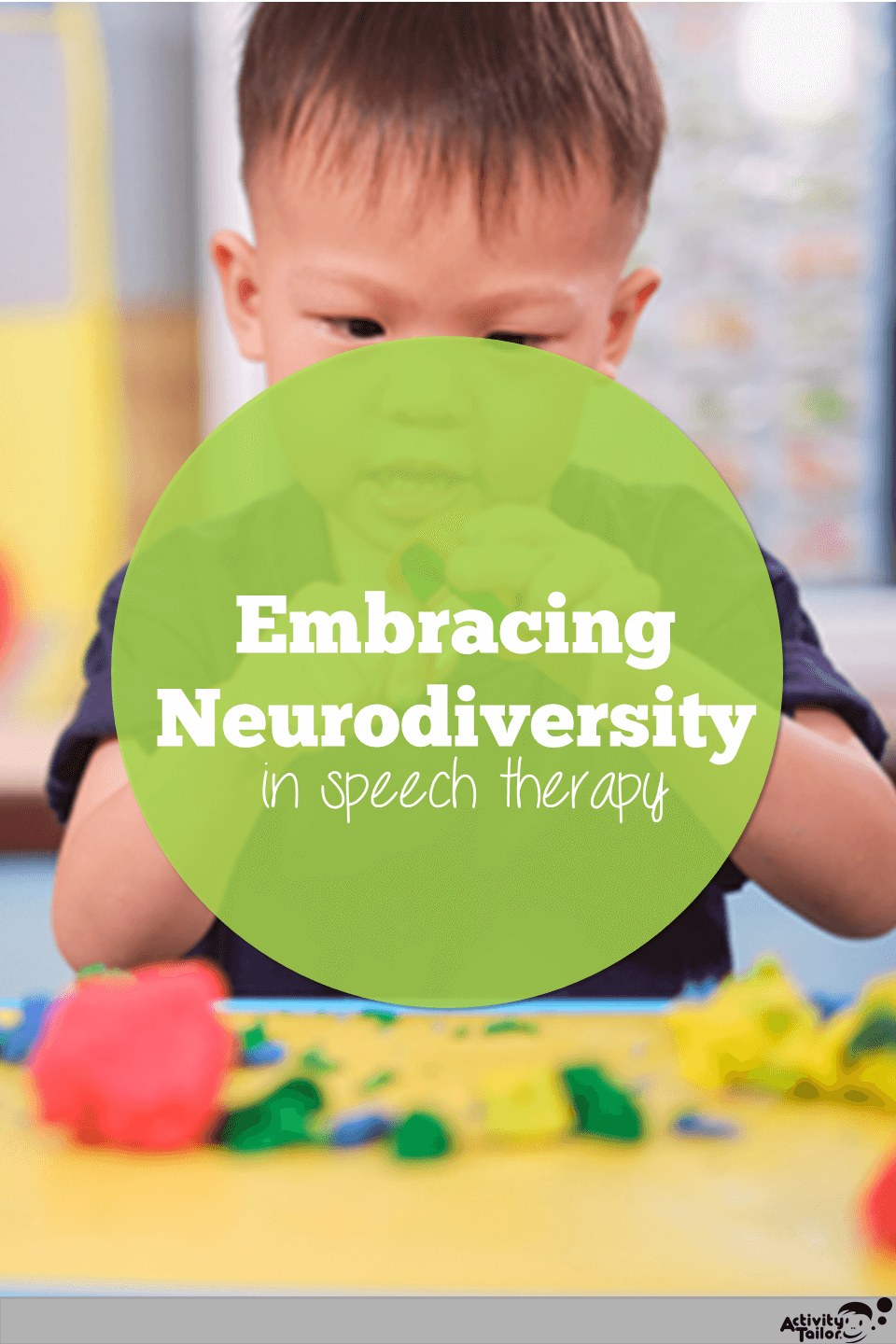
Embracing Neurodiversity in Speech Therapy and Beyond
Embracing neurodiversity in speech therapy and life choices is vital for providing the best support possible for neurodivergent children. The term “neurodivergent” is an umbrella term that encompasses Autism, ADHD, dyslexia, and other diagnoses. Neurodiversity essentially is the concept that some individuals’ developmental pathways develop differently than the majority of the population (referred to as neurotypical persons). This term acknowledges the diversity of the human race and each individual person. With neurodivergence in mind, one should consider neurodiversity-affirming language and approaches to selecting therapy and strategies in therapy. First thing’s first: neurodiversity-affirming explained The main idea behind being neurodiversity-affirming is

6 Considerations about Making Wise Investments During Your Clinical Fellowship Year
Congrats on becoming an SLP graduate! As you begin your professional journey, you will soon feel the need and desire to begin investing in continuing education courses and therapy resources in order to better your skills, continue learning, and provide the best care for your clients. Before you give all of your time (and money!) to these, stop and review these six considerations for making wise investments during your clinical fellowship year. 6 Considerations about Making Wise Investments as a New SLP Graduate #1 Focus on What You Know Although it will be tempting to try to learn everything that

4 Tried-and-True Strategies for Effective Carryover in Articulation Therapy
Kids often get stuck in therapy. They can make a sound (or sounds) in structured activities but need help to move beyond that. The answer to this dilemma is they are lacking in CARRYOVER. Implementing carryover activities in articulation therapy is essential, and they don’t have to be difficult either! Try these 4 tried-and-true strategies for effective carryover in your articulation therapy sessions TODAY! Start Early! First thing’s first– know that you should start addressing carryover skills as soon as possible! By implementing carryover strategies in small chunks over the entire course of a child’s therapy journey, you’re instilling self-confidence

An Overview of the Minimal Pairs Approach for Speech Sound Intervention
The minimal pairs approach is a popular intervention for treating speech sound disorders. You might have heard your child’s SLP mention this, or maybe you are an SLP who is looking for a refresher about how to implement it with some of your students. Read on for an overview of the minimal pairs approach and learn when it’s most effective and how to implement it in therapy sessions! What is the Minimal Pairs Approach? The minimal pairs approach is one of the oldest interventions used to treat phonological disorders in speech. It’s formally referred to as “Minimal Oppositions”. This approach

SLP Expert Opinion: Milestones vs Averages and Why Developmental Milestones Have Changed
You’re frustrated. Other kids the same age as your child are talking so much more than yours is, but your pediatrician is saying there is nothing to worry about. People are saying the developmental milestones changed recently too. What does all this mean, and what should you do next? Let’s dive right in and answer these questions! The Pediatrician Says Don’t Worry There’s a lot of talk about milestones when you have little ones, but one of the most frequently asked questions I hear is “Why don’t the milestones SLPs talk about match what my child’s pediatrician says?” This is

5 BEST Tips to Make the Most of Your Summer Off as an SLP
Hooray, it’s almost summer! You’re a hard-working SLP, and you’ve given your all for the past 9+ months of this school year. It’s easy to want to leave it all behind you and run towards summer break, but following these 5 tips will ensure you actually make the most of your summer off as an SLP. You owe it to yourself! Finish well Get ahead Reflect Disconnect Have fun! Make the Most of Your Summer Finish Well Actually finish the year! Finish filing. Throw away those papers you aren’t sure what to do with that you’ve looked at all year

Understanding Pop-Out Words in Speech and What They Mean for My Child
Is there anything more frustrating than hearing a word a couple of times from your child and then IT DISAPPEARS?! Where did it go?! These words are referred to as “pop-out words”. They are a very normal occurrence for little ones whether they’re on track with their speech and language development or a bit behind. Let’s talk more about understanding these pop-out words in speech and what they really mean for your child. More about Pop-Out Words The phrase “pop-out words”, coined by Pam Marshalla, refers to when a child says a word clearly on occasion but doesn’t say the

Does Your Child Repeat Everything? They Might be a Gestalt Language Learner!
Does your child repeat words and phrases? Maybe common things you say or lines from their favorite song or show? Do the words or phrases sometimes feel out of place? Even though they repeat, does it feel like your child doesn’t repeat when you ask them to? Your child might be a gestalt language learner! What is Gestalt Language Learning? Gestalt language learning is a style of language learning that starts with repeating phrases and ends with making new, spontaneous speech. Unlike most children who learn to communicate starting with single words, gestalt language learners acquire language through chunks called

How to Help Your Child Learn to Share and Why They Aren’t Already
Share, please share, share. You likely say this often to your little one. But why? And why don’t they understand? Teaching little ones how to share can feel like such a challenge. Let’s chat about why this is often the case and how you can help teach sharing to your toddler or preschooler. Why is Sharing Important? Sharing promotes compromise and fairness. It is vital for developing lasting friendships, cooperating with others, learning how to wait, negotiating skills, and managing feelings of disappointment. Sharing back and forth in play also sets the stage for the back and forth style of

Seeing Speech Students Over the Summer
Can you take a few private clients this summer? If you’re interested in seeing students over the summer, now’s the time to start making plans! If you’re like many speech-language pathologists, you work in the public schools during the school year which gives you the opportunity to either take the summer off or to take on summer speech students. When I sent my weekly newsletter and asked if anyone was interested in hearing my experience with working over the summer months, I was inundated with requests for more information. Here it is! Please keep in mind, requirements may vary depending

Embracing Neurodiversity in Speech Therapy and Beyond
Embracing neurodiversity in speech therapy and life choices is vital for providing the best support possible for neurodivergent children. The term “neurodivergent” is an umbrella term that encompasses Autism, ADHD, dyslexia, and other diagnoses. Neurodiversity essentially is the concept that some individuals’ developmental pathways develop differently than the majority of the population (referred to as neurotypical persons). This term acknowledges the diversity of the human race and each individual person. With neurodivergence in mind, one should consider neurodiversity-affirming language and approaches to selecting therapy and strategies in therapy. First thing’s first: neurodiversity-affirming explained The main idea behind being neurodiversity-affirming is

